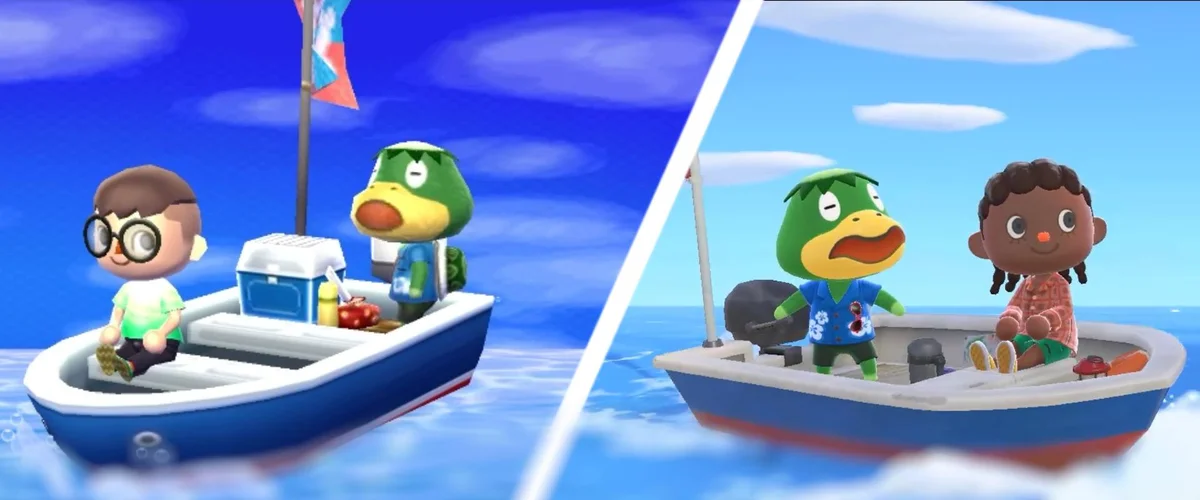If there’s one thing my girlfriend loves to rant about, it’s how Animal Crossing: New Horizons pales in comparison to New Leaf. While many hailed New Horizons as the future of the franchise, she’s convinced it lacks the soul that made New Leaf such an unforgettable experience. From design changes to missing key features, here’s why she believes New Horizons is more of a missed opportunity than a revolution.
Furniture and Customization
Despite New Horizons allowing players to place furniture outdoors—a feature fans had long clamored for—there’s something missing. New Leaf had a wider variety of furniture sets, many of which were more cohesive and thoughtfully designed. It’s surprising, but New Leaf simply had better furniture options. And to top it off, New Leaf had larger rooms, offering players more freedom to decorate inside.
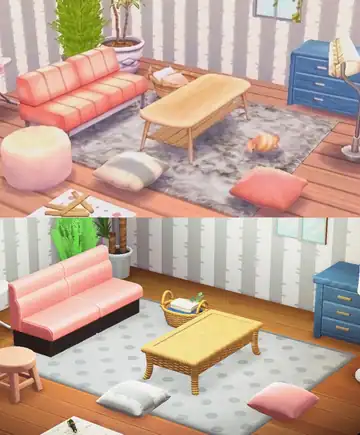
Yes, New Horizons makes customization easier with tools like terraforming and cliff creation, but for her, it’s an empty experience compared to the authentic charm New Leaf offered. It’s not just about making an island look pretty; it’s about the feeling of building something personal and alive, and New Horizons misses that mark.
The “villager-trading” trend in New Horizons cheapened the entire experience. Trading villagers like collectibles for the sake of getting the cutest one? That takes away from the heart of the game. Villagers are no longer part of a rich community; they’ve become trophies. This dynamic robs the game of its emotional core.
Villager Dynamics: From Personality to Repetition
One of the most heartbreaking losses in New Horizons is not just how villagers talk to you but how little you can do with them. In New Leaf, villagers felt like they were part of your daily life in a deeper way—you could play mini-games like hide and seek, ask them for favors, and even have more interactive moments like inviting them to hang out at your house. Now, while villagers in New Horizons can sit, read, and do aerobics — but all these interactions feel surface-level.
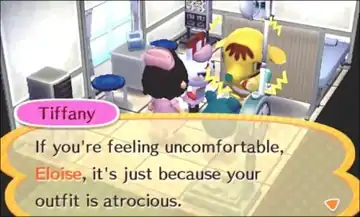
Gone are the dynamic activities that made the villagers feel truly alive and autonomous in New Leaf. Instead of engaging in unique events, villagers seem locked into the same repetitive behaviors, with little variation in their routines. This lack of deeper interaction hurts the core of what made Animal Crossing special—those unexpected, joyful moments with your villagers that made you feel connected to the world. Now, the interactions feel more like staged sets rather than organic parts of a daily life.
This lack of variety in conversations strips the game of its emotional depth. You no longer feel like you’re connecting with distinct personalities — that made decisions they wanted to do — but rather managing a population of programmed pleasers. It’s not just a minor downgrade; it fundamentally alters the spirit of the game. In a series where community and interaction were supposed to be at the heart of the experience, this change feels like a hollowing out of what once made Animal Crossing truly magical.
From Mayor to Taskmaster
In New Leaf, being the mayor wasn’t just a title—it gave you true importance. You had an office, a space to plan, and every decision you made impacted your town’s growth. You could launch public works projects, build bridges, and influence your town’s layout in meaningful ways. The mayor role made you feel essential to your town’s development, giving a true sense of progression and purpose.
In New Horizons, they try to make you feel like just another villager, but you still control everything. However, it’s less satisfying. You make decisions, but there’s no office, no official projects—just an endless to-do list. New Horizons turned what was once a meaningful role into a checklist of tasks, making it feel like you’re managing a project rather than leading a town. The player’s authority feels diluted, turning what should be rewarding responsibilities into repetitive chores.
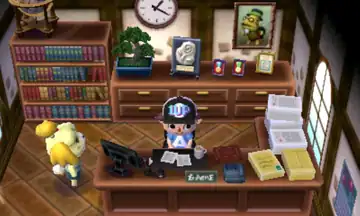
From Vibrant Towns to Lifeless Islands
New Leaf’s shopping district was vibrant, evolving with time. Shops upgraded, interactions deepened, and the progression felt rewarding. New Horizons is the opposite. You’re stuck with only three stores, and there’s no sense of growth.
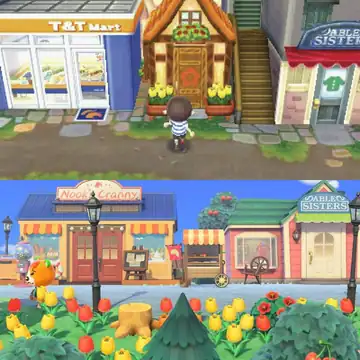
Where is the sense of community? No club, no disco—nothing feels alive. The shopping experience is static and lifeless, a far cry from the thriving town that New Leaf gave us. You could even donate your items before—now, you’re left with a feeling of pointlessness. And without an upgrade system, the shops feel like an afterthought.
The Sounds of Stagnation
While New Horizons introduced some decent new KK Slider tracks, the hourly music throughout the day feels uninspired. In New Leaf, each hour had its own soundtrack that contributed to the day’s rhythm and emotional connection. In both games, music shaped the atmosphere, but New Leaf made each hour feel distinct, adding depth to your experience.
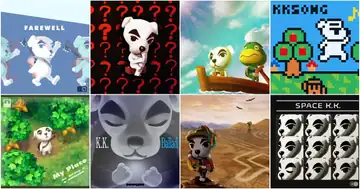
New Horizons tries to create a laid-back island vibe, but it doesn’t hit the mark. Most tracks are forgettable, and only a few stand out. The game’s release also felt incomplete. Features like Kap’n and Katrina were added months after launch, making the game feel like it was constantly playing catch-up. It felt like they were reacting to complaints rather than delivering a complete experience from the start.
Multiplayer and Mini-Games
In New Leaf, multiplayer was engaging thanks to the mini-games on Tortimer Island. These tours allowed players to participate in fun activities like bug catching, fishing contests, and even maze games, fostering a sense of shared experience. The interactivity brought friends together, and each visit felt purposeful.
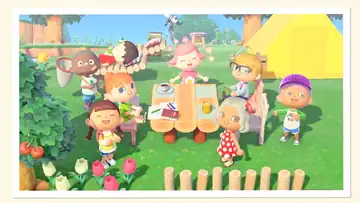
New Horizons? Multiplayer feels pointless. Even though a lot more players can now join, there’s no real interaction or engaging activities to do together—just wandering around islands. The absence of mini-games leaves the multiplayer feeling hollow. It’s a missed opportunity to create meaningful bonds, making New Horizons’ multiplayer far less connected than New Leaf’s.
Bright Spots Amidst the Flaws
The crafting system, while new to the Animal Crossing formula, adds a layer of engagement. However, for nostalgic players, crafting felt unnecessary—it wasn’t part of the original charm. It’s nice, but doesn’t always mesh with the cozy simplicity that long-time fans love.
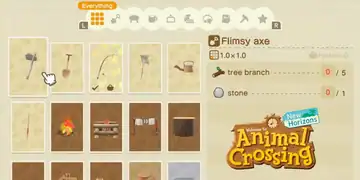
As for the museum? Absolutely stunning. This is one area where New Horizons truly shines. The design is breathtaking, and Celeste now has a real purpose, offering star recipes and stargazing opportunities that weren’t present before. This gave her a deeper role, unlike in previous entries.
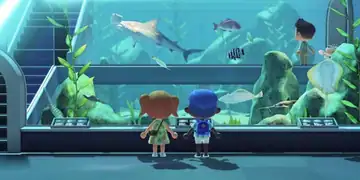
The Sandbox Problem: Freedom and No Connection
At its core, New Horizons feels more like a sandbox game than an authentic Animal Crossing experience. The freedom to design your island is impressive, but it also strips away the connection players had to their towns. In New Leaf, you felt like a part of something alive and growing, but New Horizons transforms that into a task-driven, goal-oriented project-management game.
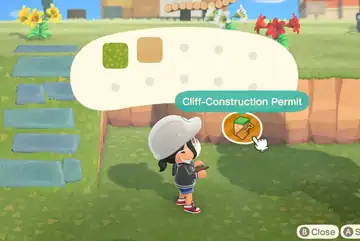
New Horizons introduces a capitalist undertone, where every action is geared towards efficiency rather than fostering emotional ties with your town.
What Happened to the Heart of Animal Crossing?
New Horizons lost something important: its spirit. New Leaf had heart—letters from your parents, the town tree growing as a symbol of your progress. Now, those small touches are gone. There’s no emotional anchor. Where New Leaf felt like a living, breathing community, New Horizons feels like a checklist of tasks to complete. The fun activities, the snappy conversations, the little things that mattered are missing. What we’re left with is a beautiful but soulless shell.
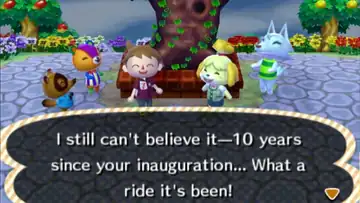
In the end, New Horizons is great for those who love designing islands, but for fans like my girlfriend who are seeking that deeper connection with their town and villagers, it falls short. It’s a game for builders and managers, not for those who want to lose themselves in the charm and warmth of a living town. Sure, if you haven’t played New Leaf, it would be difficult to compare without a reference point, new players would’ve been lost. And that’s why New Leaf still reigns supreme in her eyes.
- yaro
